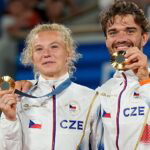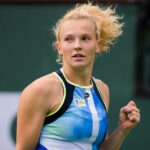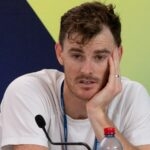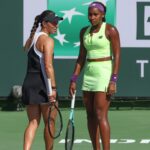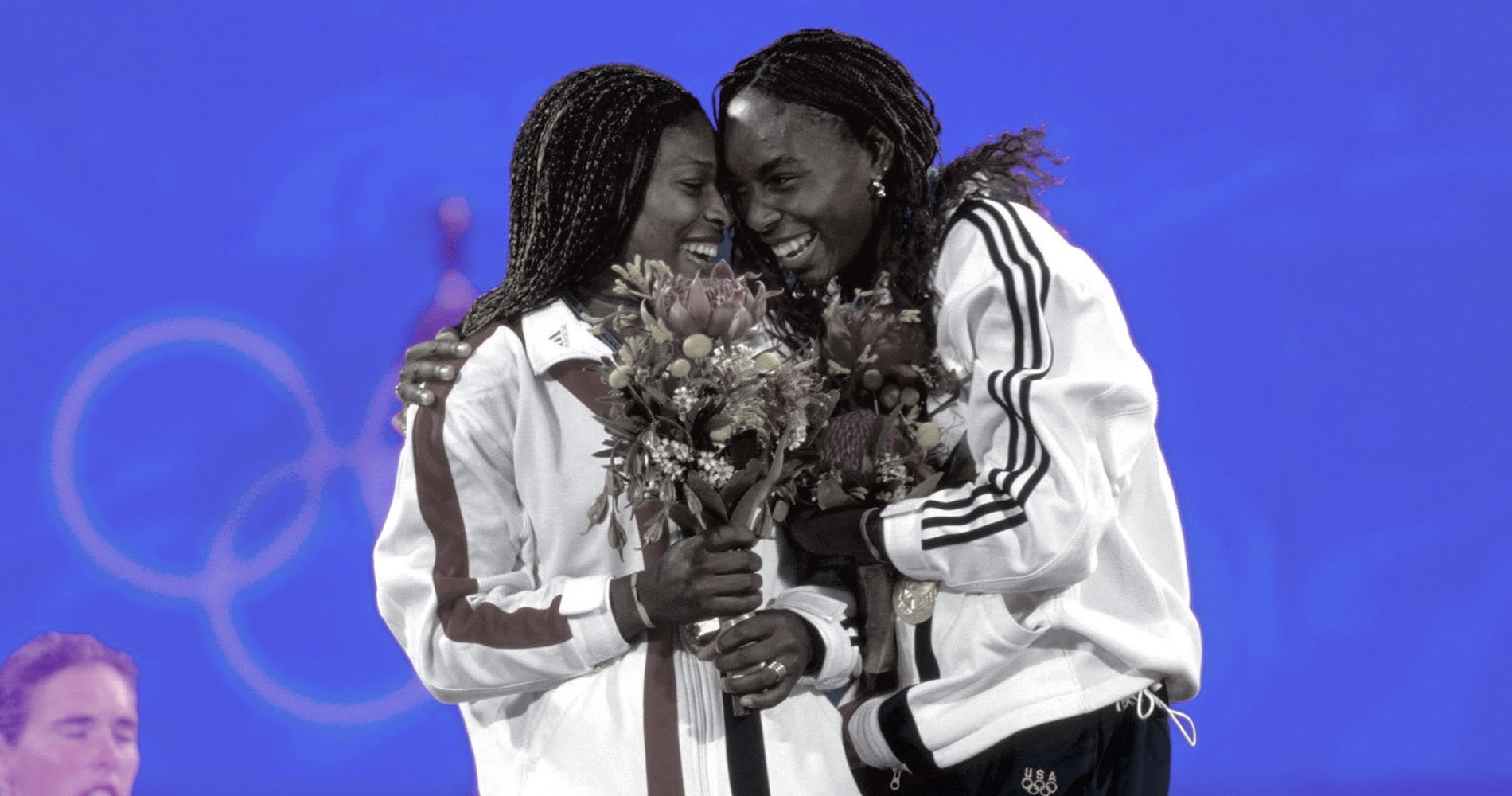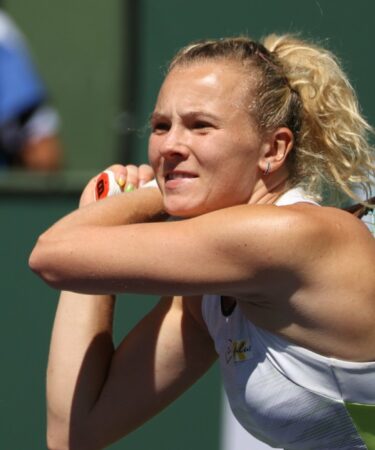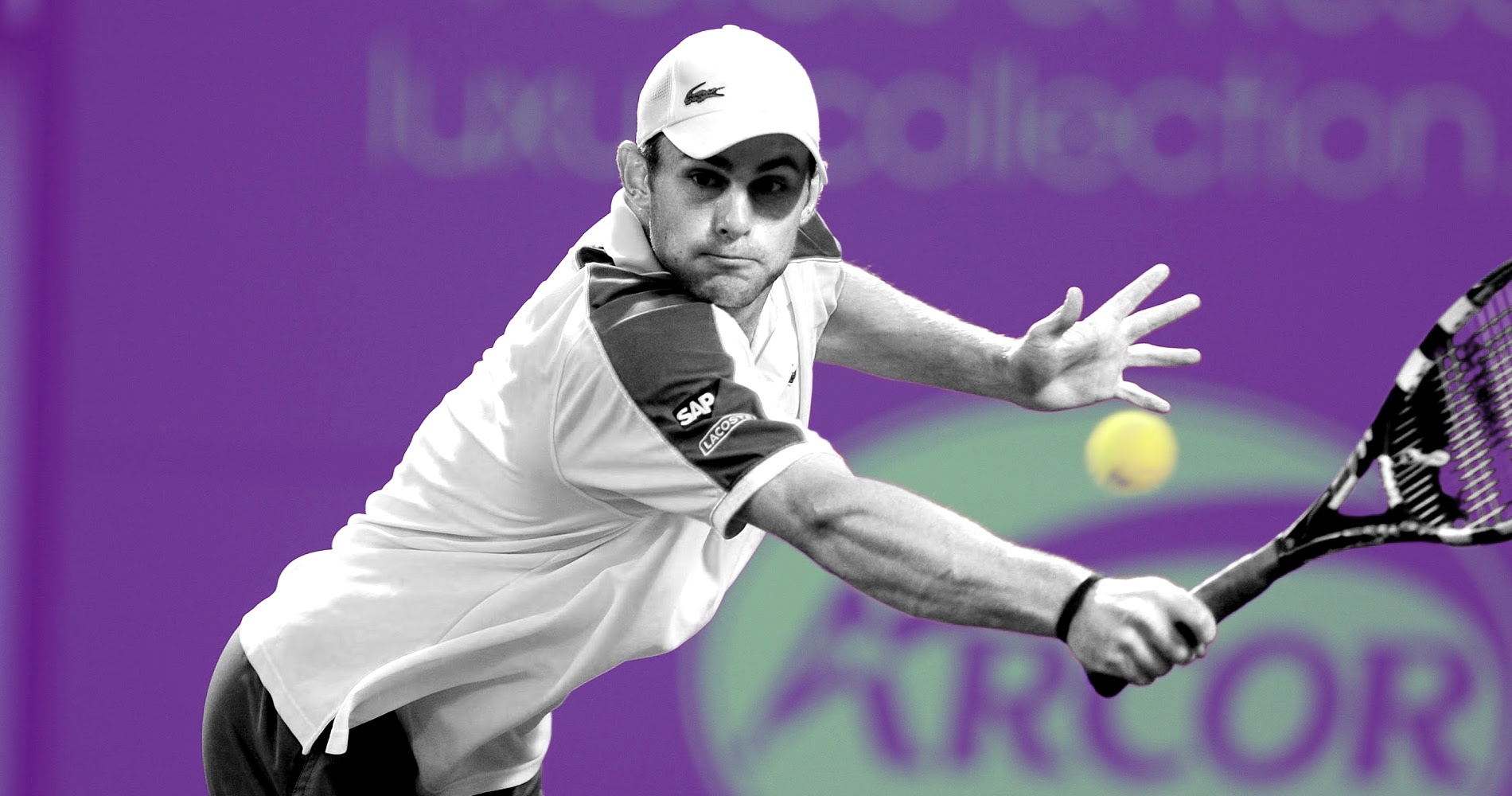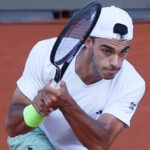“I’ve achieved a lot in doubles, but no one cares,” says Katerina Siniakova
Katerina Siniakova took some time before starting her tournament in Wuhan to reflect on her crazy summer from clinching major titles to landing on the gossip pages.
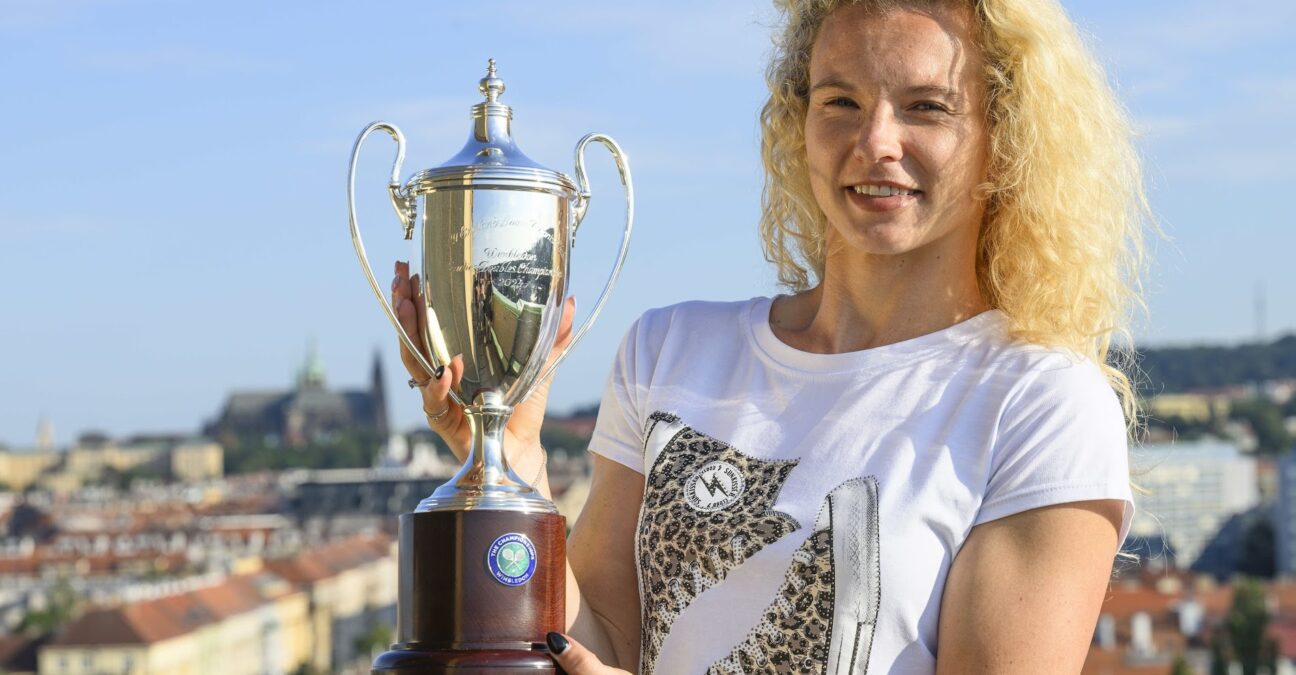 Katerina Siniakova showing her Wimbledon trophy back home in Prague in 2024 (CTK Photobank_Panoramic).jpg
Katerina Siniakova showing her Wimbledon trophy back home in Prague in 2024 (CTK Photobank_Panoramic).jpg
Katerina Siniakova is surely the most in-form and successful player of the year that you haven’t heard enough about. She is World No.1 in doubles and one of history’s most successful doubles players. The Czech is also ranked 37 in singles this week after hitting her highest ranking this year in June (27th).
Siniakova went through a crazy stretch this summer by winning the titles at Roland-Garros (with Coco Gauff), Wimbledon (with Taylor Townsend), and at the Olympics (mixed doubles with Tomas Machac). In Wuhan, where she sat down to talk about it all, she’ll play singles and doubles, as usual, and it’s a no-brainer for her as it’s just how she built her career. She actually goes way back in doubles as in 2013, as a junior, she won Roland-Garros, Wimbledon, and the US Open. A natural.
“Everywhere, when I was young, I played singles and doubles. I started when I was 10, playing doubles,” she said on Sunday afternoon at the Wuhan Open. “I didn’t focus on it, I just wanted to be good in singles and doubles. It was really nice, but then when I turned pro, it got more separated, and yet I never thought I wanted to play just one and not the other. It all went along and did really well,” she laughed.
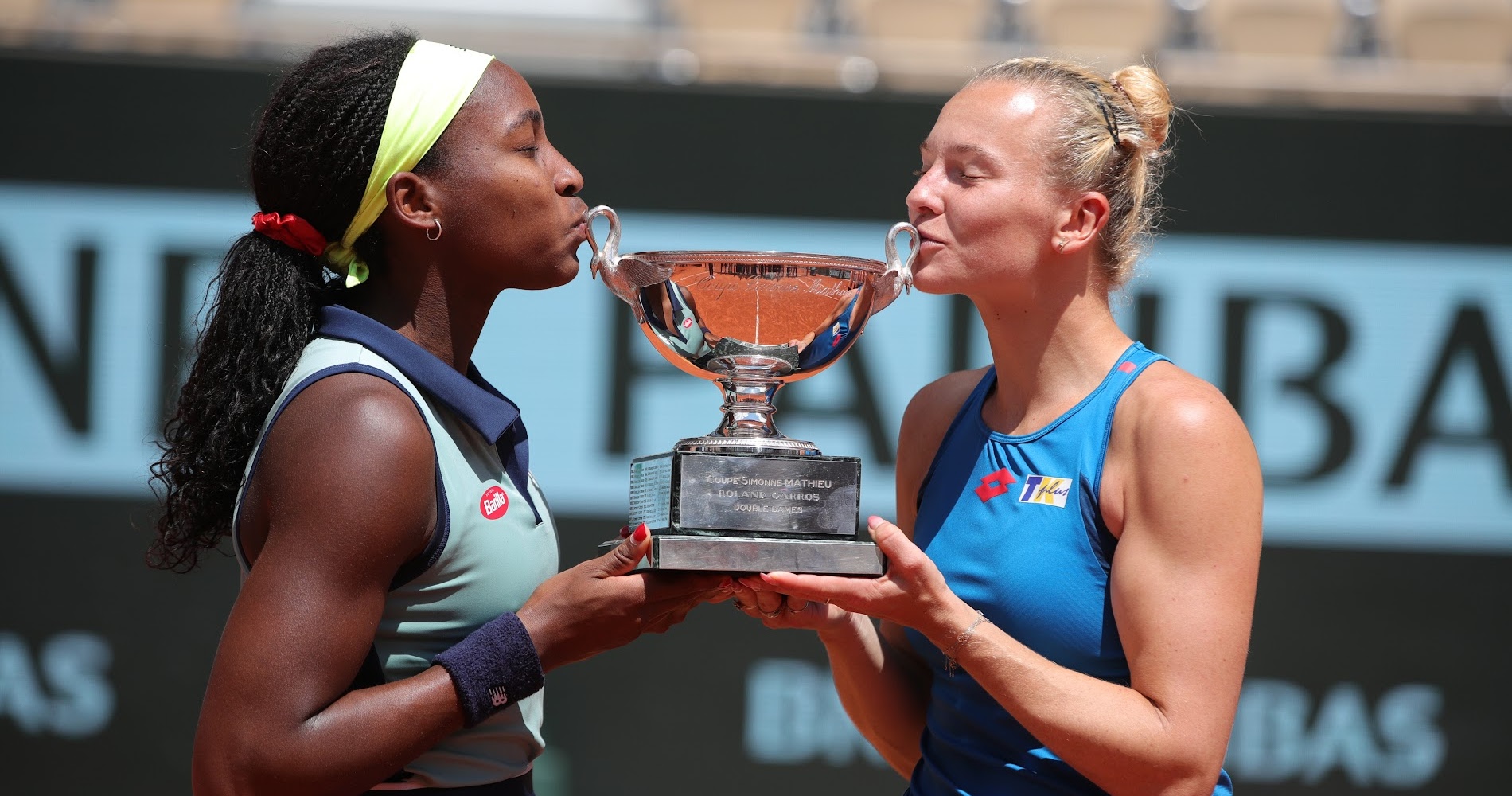
It went really well indeed. Siniakova, 28, is now at the top again of the doubles world, having already finished World No.1 in 2018 and 2021. She owns 27 doubles titles, including 9 Grand Slam titles. She made the career Slam and won gold with Barbora Krejcikova at the Olympics in Tokyo in 2021. As tennis never stops, has Siniakova found at least a bit of time to let her blockbuster of a summer sink in? Nope. “It’s really tough in tennis, and sometimes you cannot even remember what you did after the season, so you have one day, or maybe not even one day, after winning a title to think about it. Definitely, so far, it’s amazing, but I will surely realize it more after I’m done with tennis.”
Yet, if she had to pick, she’d say winning a gold medal again made a lasting impact. “I would say the Olympics made the biggest difference as you could see that people who don’t even like sports, and don’t usually watch sports, know what’s happening, whereas to care about Grand Slams, you need to know about tennis and really be in it. The biggest change was the Olympics.”
What hasn’t changed, though, is the lack of recognition felt around her achievements and, more generally, around doubles players’ achievements. You would think that adding two Grand Slams and an Olympic title to Siniakova’s already impressive résumé would have made some waves, but she says it didn’t, and she was expecting it to be this way.
“Definitely, it’s different than in singles. I feel that even when I’m number 1, I don’t get the same advantages, the same practice situations, and I don’t get to do any media, so it’s a really big difference,” she said matter-of-factly without any anger about it, just acknowledgment of the situation. Her crazy summer really didn’t change that? “No!” she laughed. “Unfortunately, no. And it’s really sad about doubles. I can just speak for myself: I think I’ve achieved a lot in doubles, but no one cares. But that’s how it is, I don’t care anymore and I don’t think it’s gonna change. Sometimes, you need to save this energy for something else. I know I did great stuff. But sometimes I’m in a main draw in singles, being Top 30 or Top 50, and I get better chances to practice than when being here as World n°1 doubles player, and that’s how it is.”
That also may be one of the reasons why she’s a rarer species on the Tour as a top singles player (she has won 5 titles so far and reached the second week at Roland-Garros in 2019) who is also fully committed to doubles. The funny thing with Siniakova is that she never even had to really wonder about playing doubles or not: it’s like she cannot think of tennis without doubles. And it’s not even as if she was making a big deal of it either.
“I didn’t think about playing both or not, actually. When I started playing both in juniors, I knew I was physically ready, so I wanted to play both. Then, when I turned professional, it was the same. I got lucky to be able to stay healthy and ready for both. Playing doubles has never been my priority, but it all kind of went my way there. Singles was and is my priority, and I don’t even practice for doubles, so I’m just really happy that it’s going so well. The way you play in doubles is so different, but I was lucky to have some talent!”
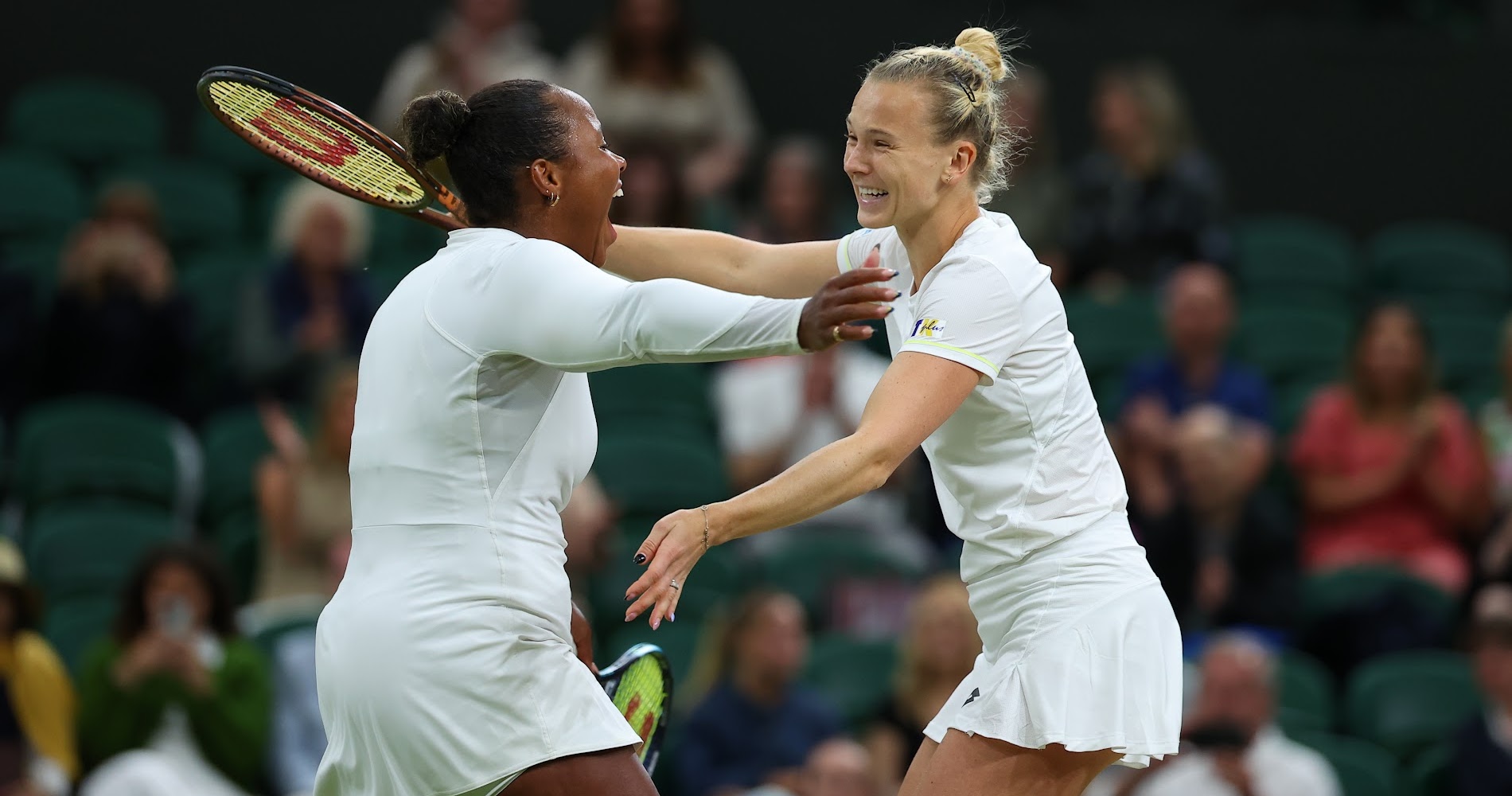
Many singles players decided to stop playing doubles at some point, like Aryna Sabalenka. Siniakova shrugs it all: as long as the body can take it, she will keep going. After all, Ashleigh Barty, and now Coco Gauff, Elise Mertens and Barbora Krejcikova proved and continue to prove it can still be done. The Czech knows how much she owes to doubles. “It’s challenging for my schedule, but not for the physical side because I would go practice anyway. At the beginning of my career, I used doubles for practice because it’s much better to get matches than practice matches. Doubles really helped me at the beginning of my career by giving me more match experience and getting used to the nerves. Sometimes you can also be more relaxed because you are not alone there. And I’ve always felt very good physically, so it’s never been a problem.”
But she thinks things will be different for the next generation, that the days of seeing top singles players seriously involved in doubles are numbered. Even though she keeps hoping that her journey could inspire the next wave to still give doubles a shot.
“I would love to inspire them. It’s really nice to be able to do both but it’s really tough because now everyone is being pushed to think that if you play singles you need to rest, you need to be just so focused on everything you’re doing. So for the young players, it’s really tough. A lot of top players are now just playing singles, so doubles is on the side. But I’d say many singles players on the WTA Tour are still playing doubles, so it depends on the person and how they feel. But the new generation is told and so say that you need to focus on singles if you want to be better. In the end, it really needs to be a feeling about what you prefer to do if you’re healthy, and of course, it’s tough to know at the beginning of your career. But above all, you need to like it. And then you work hard.”
Another point often brought up by singles players finding success in doubles is that it has immensely helped their game. “At the beginning of my career, yes, it definitely helped me for the serve and the return because, in doubles, you need to be more solid there as you have the player at the net. I think, yes, it’s helping me. Even when I had some big singles matches on big stages, it helped me to go and play because I had already been there.” What makes her such a great doubles player, though? Something extra compared to her singles skills? “I would say the way I play at the net, for sure. Also, the reflexes, the fact that I’m fast. I am, I guess, talented because you can learn the reflexes and all that, but I never practiced this, so I have to be lucky. Also, sometimes, as a great athlete, you just have it in you, but then you still have to work, and everything needs to click together.”
Despite it all, she will still swear to you that playing singles has always been her priority, and so one can only wonder if she has, at some point, been tempted to try a season without doubles. Just to see. She smiles because, of course, it’s been an option pushed on her throughout her career. But Siniakova has both feet solidly anchored to the ground, and I suspect her math is always “mathing”.
She confirmed that the option came but was dismissed quite easily. “Singles was and is still my priority. My schedule is all for singles, and I never practice just doubles, even if I know it sounds crazy. I was changing my schedule at some point, not playing as many doubles tournaments as I did in the past, but I definitely wasn’t thinking about dropping it. Because when I was in the part of my career when I was thinking ‘maybe I should start trying what people say and focus more on singles’, I decided not to do it because it’s very hard to stay in the Top 20 and even if I think about money, doubles gave me the feeling it was making it easier for me to pay my team for example. And I have fun in doubles! So I didn’t want to give it up.”
“doubles gave me the feeling it was making it easier for me to pay my team. And I have fun in doubles!”
It would have seriously been a pity! Siniakova, whoever she ends up playing with, often brings the show with her. She’s all quick hands and brain. She’ll be the cat, or she’ll be the mouse, but she’ll find a way. You watch her play this year with Gauff or Townsend, and you see how she comes to right the ship when needed. Every doubles player who reaches that level of mastery in the sport is a joy to watch, and Siniakova is no exception. Adding a fun character and a true love of the game, you’d think the Tour would use her brand more.
In a sport that has as its founding principle a “you’re on your own out there” situation, Siniakova found in doubles a way to compensate for that. “In this case, doubles really suits me as like that I’m not alone out there.” But one can imagine the waiting list to share the court with her is pretty long and VIP. When asked how she picks among the candidates, she laughs and swears she’s not demanding. “I need them to play on the deuce side,” she laughs. “Usually, it’s a little bit about the game style and then about having a nice feeling. I’m ready to try with anyone, but maybe now I prefer someone who’s playing more aggressively, as it’s what I need so I can do more stuff at the net. It’s a little bit tricky with me because I don’t play the small tournaments.” We told you, she’s the VIP club.
Katerina Siniakova entered another club during the Olympics in Paris. One she never thought she’d be a member of. She landed in the “worthy of the gossip pages” club, the usual land of celebrities. Why? Well, that’s the power of the Games in the social media era. When she mentioned, in Paris at the Olympics, that she had broken up with her boyfriend and people discovered it was Tomas Machac, her mixed doubles partner, there was no coming back. People had found the romantic saga of the week. Siniakova found her private life in the gossip pages but also discussed in her tennis coverage, and she wasn’t prepared for it. Weird failed to describe how she found the whole thing.
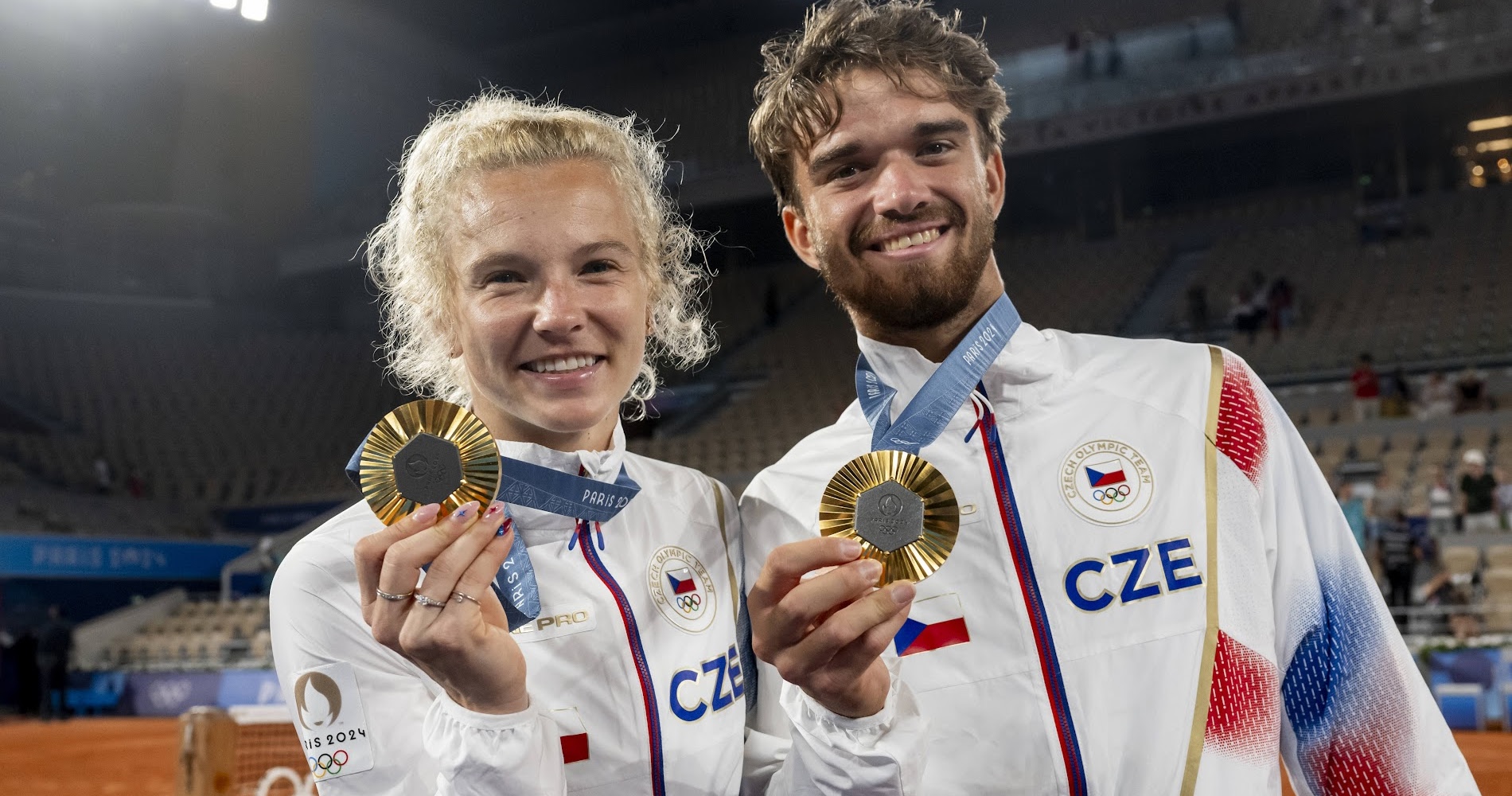
“Actually, it was so funny with all these stories. I never thought it could happen. If we didn’t break up, nothing would have happened, but anything was turned into a whole story here. In the end, it really helped me because I found out that I could keep my personal life more secret because it doesn’t matter what happens next; it taught me I would keep it more for myself. You don’t have to say it, even when people ask and are waiting to learn something more. They’re waiting for the story. It was a very emotional and tough journey, but I wouldn’t change it: it’s life, tough and good.”
She was also reassured that she could go back home and get back to her normal life. She’s not stopped in the streets, and she can go anywhere. There are so many great Czech players, but Siniakova says the general public is not as aware of them as we are. “When I go back, I feel free, and I like it. I can go into the city without feeling they really recognize me. I really like it because it’s tough when you cannot do anything. There are so many players, so people in the Czech Republic really need to watch tennis, but when you’re in public, you can still feel many people still don’t know about tennis!” she laughs. Well, they definitely should know more about Katerina Siniakova’s doubles achievements as they have already put her name in the history books.
